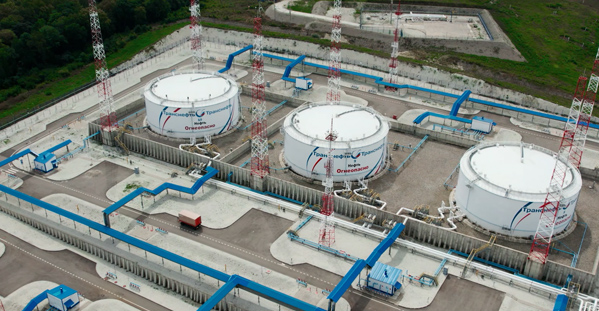Professional Training in English Language (
Hydrocarbons Transportation and Storage
). Part 3: What is safety culture? Pipeline safety
Course Overview
When student successfully complete this course, he/she will be prepared to:
- list the various technologies and equipment;
- know the basic principles of technological process regarding safety of oil and gas pipelines;
- explain the structure of basic principles of technological process;
- analyze factors influencing the pipeline safety;
- discuss professional topics in group;
- demonstrate basic communication skills by working in pairs and small group.
Course will rely on some of methods to assess student learning, including:
- Text and a talk about all topics of the course:
Unit 1. How do companies maintain the integrity ?
Unit 2. Pipeline safety: the evolution of the smart pig
Unit 3. Preparing for incidents before they happen
Unit 4. Methods used to detect leaks
Unit 5. Mechanical containment and recovery of oil following a spill
Unit 6. How technology advances have made better, safer pipelines
Unit 7. Presenting in English: «I am the attendee of memorable event in terms of petroleum engineering (scientific conference, master-class, academic competition, excursion, etc.)»
- Some tests and assignments, which may contain:
- Answering questions
- Completion tasks
- Creation tasks
- Essay questions, which ask you to write a response to a specific question or video
- Presenting in English: «I am the attendee of memorable event in terms of petroleum engineering (scientific conference, master-class, academic competition, excursion, etc.) »
Skills as prerequisite to this course:
Professional Training in English Language (Hydrocarbons Transportation and Storage). Part 1 and 2 (the 5th and 6th semesters)
Grading Policy
The grading guidelines are as follows: attendance (8%), assignments (92%).
Outcomes
Skills to be developed within this course:
- Subject specific skills:
Know professional terminology (in English).
Know main principles of pipelines and storages construction and operation.
Know equipment.
Describe the technical process.
- Research and intellectual skills:
Assimilate material independently.
Critical analyse technical process and conditions.
- Generic skills:
Work effectively to deadlines.
Present and debate ideas.
Prepare and give oral presentation using visual aids.
Undertake independent work.
Speaking, writining, leastening regarding pipeline safety.
Educational program
21.03.01 Oil and Gas Engineering, bachelor degree programme «Operation and maintenance of transport and storage facilities for oil, gas and refined products» (7th semester of 2022-2023 academic year).
The primary learning activities for this course
Units of seminars:
Unit 1. How do companies maintain the integrity ?
Unit 2. Pipeline safety: the evolution of the smart pig
Unit 3. Preparing for incidents before they happen
Unit 4. Methods used to detect leaks
Unit 5. Mechanical containment and recovery of oil following a spill
Unit 6. How technology advances have made better, safer pipelines
Unit 7. Presenting in English: «I am the attendee of memorable event in terms of petroleum engineering (scientific conference, master-class, academic competition, excursion, etc.)»
Course Duration, Number of Credits, Format of Delivery
Course Duration – 16 lessons in length (18 weeks)
Number of contact hours: 72 (in semester): lpractical sessions (seminars) - 32 hours
Number of credits – 2 credits
Pass/Fail test
Course Developer
Shadrina Anastasiia Victorovna,
Dr. Science in Exploration technology, Professor at Oil and Gas Engineering Department,
leader of master's degree programme «Reliability and safety of hydrocarbon transportation and storage facilities»,
Copyright © 2022
Томский политехнический университет. Все права защищены
Tomsk Polytechnic University, All rights reserved.

- Учитель: Шадрина Анастасия Викторовна